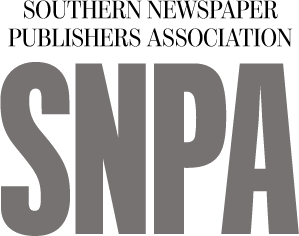Newspaper publishers to save Workers' Compensation money
On Feb. 26, Wisconsin Governor Scott Walk signed Act 180, which repealed a part of the Workers' Compensation law stating, "Every person selling or distributing newspapers or magazines on the street or from house to house is an employee." Prior to the repeal, most newspapers covered newspaper carriers and paid thousands of dollars each year in Workers' Comp premiums.
This is a great success for newspaper publishers. Now, publishers can choose to consider newspaper distributors as independent contractors and save significant sums of money. Publishers will now have a fighting chance to argue for and have independent contractor status.
The State of Wisconsin's Workers' Comp statute has a separate nine-part test for independent contractor status. Properly structured Independent Contractor Agreements can be drafted to meet the test.
The most difficult part of the test may be tax filing status. The test requires that the contractor have a Federal Employer Identification Number or, in past years, have filed as a self-employed business person.
Wisconsin publishers should immediately draft contracts that take advantage of this development.
"Quickie Election" Rule appeal update
On March 3, the U.S. Court of Appeals for the Fifth Circuit heard oral argument from attorneys for the NLRB, as well as the Texas Chapter of the Associated Builders and Contractors, the National Federation of Independent Business and others. A lower court had upheld the NLRB's new rule. The business groups were appealing.
This writer has listened to the 40 minutes of oral argument before the court. Questioning from the justices focused primarily on two points. First, the court asked many questions about the discretion of regional directors to not have a hearing on the all-important issue of supervisory status before the election. Second, the judges focused on the privacy rights of employees.
These questions expressed concern about being required to turn over employees' personal cell phone numbers and e-mail addresses. At least one judge was concerned about increasing the potential for identity theft. While it is not possible to determine what the court will decide based on questions, these were two good areas of focus.
Counsel for the companies also focused on the legislative history of the Taft-Hartley Amendments to the National Labor Relations Act, which make it clear that employers are entitled to a hearing on voter eligibility before an election. The legislative history also reflects an intention to give employees at least 30 days to decide on the issue of union representation.
The three judges were Edith Brown Clement, Catharina Haynes and Marina Garcia Marmolejo. In previous decisions, Judge Clement has been very sensitive to First Amendment issues.
Let us hope that the U.S. Court of Appeals for the Fifth Circuit reverses the lower court and invalidates the NLRB's rule as arbitrary and capricious agency conduct.
Illinois court holds truck driver to be an independent contractor
The Illinois Court of Appeals upheld a decision by a Workers' Compensation arbitrator that a truck driver was not entitled to Workers' Compensation benefits because he was an independent contractor, rather than an employee of the company for whom he was transporting goods. In upholding the decision, the court found that the evidence weighed heavily for the company because the company did not control the driver's performance to a great degree.
The court considered several factors when making its determination. For instance, the company did not tell the driver what route to take when making deliveries. The driver needed only to deliver each shipment on time, and he decided his own schedule for transporting the deliveries – including when and where to make rest stops and refuel. The only information the company provided to the driver was where to pick up a shipment, as well as where and when to deliver it.
Additionally, the driver also owned his own truck and was responsible for expenses associated with operating the truck, including speeding tickets or driving citations. The court also considered the method of payment. The driver received 70 to 75 percent of the value of each shipment, rather than an hourly rate or salary. Taxes were not deducted from his paycheck. The driver provided his own accident and health insurance.
Even though the court acknowledged that there were several factors weighing in favor of an employee status for the driver, they were outweighed by the lack of control exercised over the driver. These factors included requirements that the driver undergo training, submit to background checks, attend safety meetings and abide by the employer's work policies.
Court vindicates employer First Amendment rights
In Intertape Polymer Corp., the National Labor Relations Board ordered a new election due to unfair labor practices, including an allegation that the company engaged in unlawful surveillance when its supervisors handed out anti-union leaflets at the plant gate, alongside union supporters who were distributing pro-union leaflets.
The U.S. Court of Appeals for the Fourth Circuit reviewed the board's decision and found no evidence that the company had expected union representatives to be at the plant gate at the same time when it sent its supervisors out to distribute leaflets. The court further found that the company had a legitimate explanation for being at the gate, and was simply exercising its First Amendment and NLRA 8(c) rights to leaflet its employees during the campaign.
The Fourth Circuit admonished the board, stating that "brief period of simultaneous leafleting" was insufficient to establish that the company acted aggressively or coercively. The Fourth Circuit took a much broader view of the actions of the company; it noted that the leafleting was coincidental and that the company had a right to pass out leaflets at the plant's gate.
The Fourth Circuit ordered the board to reconsider its decision to set aside the election and said the company's small infractions were minor compared to the large margin by which it won its first election. The Fourth Circuit was suspicious of the board's remedy of a new election for such a minor violation.
 |
L. Michael Zinser is the founding partner of The Zinser Law Firm in Nashville, Tenn. The firm, which has a heavy concentration of clients in communications media, represents management in the area of labor and employment. Zinser can be reached at (615) 244-9700 or mzinser@zinserlaw.com.






